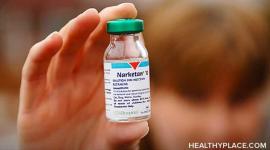Ketamine Treatment for Bipolar Depression: Does it Help

Is Ketamine treatment for bipolar depression a wonder drug, or is it an irresponsible use of a street drug? For many, ketamine is a miracle treatment breakthrough that helps people facing severe bipolar depression, treatment-resistant bipolar depression, and suicidal thoughts that can accompany these serious bipolar episodes. Others are skeptical and point to myriad problems associated with ketamine. Let’s explore the facts about this substance to understand more about ketamine treatment for bipolar depression.
Ketamine at a glance:
- It only has FDA approval as an anesthetic
- Ketamine is an anesthetic in both human and veterinary medicine
- Ketamine is also a street drug, often taken as a party or club drug
- Ketamine’s chemical structure and the way it acts on the brain are similar to the street drug PCP
- It can make people dissociate, or detach from reality
- It’s used as a date rape drug
- When misused, ketamine can cause impaired learning, memory, and attention; delirium, amnesia, potentially fatal respiratory problems, agitation…and depression
At first glance, ketamine looks horrible. It’s dangerous and does nasty things, including possibly causing depression. How, then, can people use it to treat bipolar depression? When Ketamine is used to treat bipolar depression under medical care, ketamine is not being used as a street drug or an anesthetic. It’s being used as an antidepressant, and it can be a very effective one.
How Ketamine Treatment for Bipolar Depression Works
Ketamine is different from traditional antidepressants. Traditional antidepressants target the neurotransmitters serotonin, norepinephrine, and dopamine. Ketamine blocks glutamate and enhances the brain’s ability to grow and change.
Ketamine blocks the N-methyl-D-aspartate (NMDA) receptor, which seems to be its depression-reducing kingpin. It rebalances glutamate and GABA as well as facilitates the development of new receptors and synapses.
The ketamine-induced activity in the brain leads to the reduction of severe bipolar depression symptoms. Ketamine treatment can bring a host of benefits.
Advantages and Benefits of Ketamine Treatment for Bipolar Depression
Ketamine has a high success rate, with up to 85 percent of people reporting significant improvements in their mood (Depression Alliance, n.d.). This leaves about 15 percent of people unaffected by ketamine treatment, whereas, with traditional antidepressants, approximately 33 percent of users don’t improve.
Not only does ketamine treatment help bipolar depression, but it also does it quickly. While it can take four- to eight weeks to feel the positive effects of traditional antidepressants, ketamine treatment creates relief in a matter of hours.
While ketamine treatment does offer advantages, it has disadvantages, too.
Drawbacks of Bipolar Depression Ketamine Treatment
Researchers have identified certain problems with ketamine use in bipolar depression.
- There’s only a small difference between a safe and effective dose and a lethal dose
- Researchers are still trying to find a dose that’s high enough to be effective and low enough to be safe
- People can experience distorted vision and hearing
- Tolerance risk; people will need more to have the same effect on depression symptoms
- Ketamine carries a risk of abuse
- It may not be safe (or effective) for long-term use
- Long-term treatment frequency is unknown
- May always require treatment in a clinic because, as a street drug, it may not be available in pharmacies
Despite these disadvantages, many people are receiving ketamine treatments for bipolar depression and are so happy with the results that they continue with treatment despite the cost.
Receiving Ketamine Treatment
Some psychiatrists offer ketamine treatment as a trial. If you can’t find a psychiatrist who does this, you could go to a ketamine clinic.
Ketamine clinics have begun to spring up nationwide. Many clinics are located in university medical centers and are reputable. Others may be unsafe or unreliable because there’s no oversight or standard of treatment regulating treatment centers.
Treatment involves a ketamine infusion for bipolar depression, which is ketamine delivered intravenously. Nasal sprays, including esketamine aka Spravato (FDA approved for treatment-resistant depression), and others pending FDA approval, may soon be another ketamine treatment method. Because ketamine’s bipolar depression-relieving effects are temporary, people undergoing treatment need to return every few weeks for another round of treatment.
Because the FDA hasn’t approved ketamine treatment for bipolar depression, insurance typically doesn’t cover treatments. Most people pay out-of-pocket for the treatment, and the cost is hefty. Infusions cost between $400 and $800 each. With treatments occurring every few weeks, ketamine treatments for severe bipolar depression can be over $10,000 each year.
Ketamine treatment for bipolar depression is promising. Early experiences indicate that the treatment, while expensive, is effective and efficient. There are still many unknowns, however:
- When used long-term, will it be safe and effective?
- What is the right dosing schedule, amount?
- How many treatments will be recommended?
The current recommendation is that ketamine treatment for bipolar depression be used only when all other treatments have been unsuccessful. And even then, ketamine treatment should be short-term only, to augment traditional medication while it begins to work. Cautious use may be the most effective and safest approach.
APA Reference
Peterson, T.
(2021, December 28). Ketamine Treatment for Bipolar Depression: Does it Help, HealthyPlace. Retrieved
on 2025, May 29 from https://www.healthyplace.com/bipolar-disorder/bipolar-depression/ketamine-treatment-for-bipolar-depression-does-it-help



